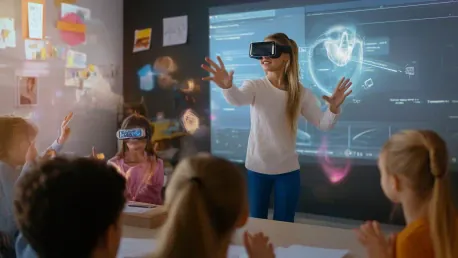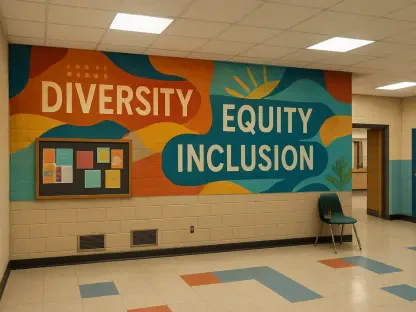Imagine a classroom where every student receives a tailor-made education plan, aligned perfectly with their learning pace, strengths, and areas for improvement. This reality, driven by sophisticated educational technology (EdTech), is transforming how learning is approached.
A Digital Revolution in Education
Recent advancements in EdTech have paved the way for revolutionary changes in personalized learning. The traditional one-size-fits-all model is increasingly becoming obsolete, replaced by systems smart enough to adapt to individual needs. Now, students are engaging with content that dynamically shifts according to their progress, ensuring that no one is left behind or unchallenged.
The Power of Data
Central to personalized learning is data. By leveraging data analytics, educators can gain deep insights into student performance. Tools like machine learning algorithms analyze countless data points, identifying patterns and predicting future learning trajectories. For example, a student who struggles with algebra might receive extra support in that area while progressing quicker in geometry.
“Data empowers us to make informed decisions about student learning,” says Dr. Anna Clarke, an educational technologist. “It’s like having a detailed map that guides us in understanding each student’s journey.”
Adaptive Learning Platforms
EdTech companies have developed adaptive learning platforms that continuously assess a student’s understanding and adjust the content accordingly. Imagine a virtual tutor that knows precisely when to review a concept and when to introduce new material, ensuring optimal learning outcomes. This level of customization fosters a more engaging and productive educational experience.
Real-World Applications
Schools and universities worldwide have been adopting these technologies to cater to diverse learner needs. For instance, platforms like DreamBox and Khan Academy offer sophisticated personalization features that enable students to progress at their own pace. The implementation of these tools has shown promising results, with students demonstrating improved comprehension and retention rates.
“As educators, witnessing the transformation in students who were once struggling but are now thriving is incredibly rewarding,” remarks Professor James Kim, an early adopter of adaptive learning platforms.
Challenges and Considerations
While the benefits are undeniable, integrating personalized learning with EdTech comes with its challenges. Concerns regarding data privacy, the digital divide, and the need for teacher training are significant hurdles. It’s essential to address these issues to ensure equitable access and effective use of technology.
The Road Ahead
Looking beyond current developments, the future of personalized learning with EdTech promises even more compelling advancements. Artificial intelligence, augmented reality, and gamification are set to revolutionize education further, making learning an immersive and engaging experience for students of all ages.
Educators, policymakers, and technologists must collaborate to overcome existing barriers. They can ensure that personalized learning continues to evolve, bringing us closer to an educational utopia where every student receives the individual attention they deserve.
In reflecting on these advancements, it has become clear that the fusion of personalized learning and EdTech was a significant stride toward transformative education. Now, educators and students alike must embrace these tools to craft a bright, equitable future for learning.









